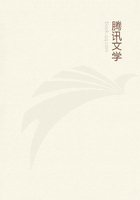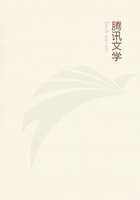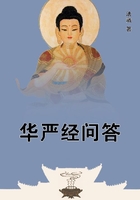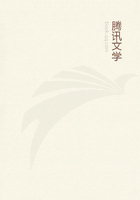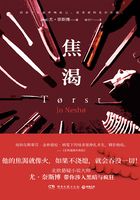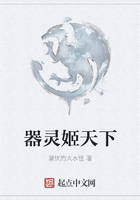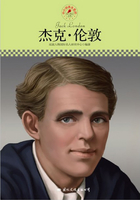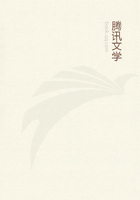Jacobi further states upon this subject, in the first place, that "Reason" - later on when he distinguished reason and understanding (of which more hereafter(5)), he altered it to understanding(6) - "can never bring to light more than the conditions of what is conditioned, natural laws and mechanism. We comprehend a thing when we can deduce it from its proximate causes,” and not from the remoter causes; the most remote and quite universal cause is always God. “Or” we know the thing if we “perceive its immediate conditions as they come in due succession. Thus, for instance, we comprehend a circle when we can clearly represent to ourselves the mechanism of its origination or its physical conditions; we know the syllogistic formul? when we have actually come to know the laws to which the human understanding is subject in judgment and conclusion, its physical nature and its mechanism. For this reason we have no conceptions of qualities as such, but only intuitions. Even of our present existence we have a feeling only, but no conceptions. Genuine conceptions we have merely of figure, number, position, movement and the forms of thought; qualities are known and understood, if they are traced back to these and objectively annulled.” This is undoubtedly really finite knowledge, which is to give the determinate conditions of anything determinate, to demonstrate it as resulting from another cause, in such a way that each condition is again conditioned and finite. Jacobi continues: “The business of reason is really progressive union and connection, and its speculative business is union and connection in accordance with the known laws of necessity, i.e. of identity. Everything that reason can bring forth by means of analysis, combination, judgment, conclusion, and re-conception, consists in nothing but things of nature” (i.e. finite things), “and reason itself, as a limited existence, belongs to these things. But the whole of nature, the sum of all conditioned existence, cannot reveal more to the investigating understanding than what is contained in it, namely, manifold existence, changes, a succession of forms” (the conditioned), “and not an actual beginning” (of the world), “nor a real principle of any objective existence."(7)But Jacobi in the second place here accepts reason in a wider sense and says: “If we understand by reason the principle of knowledge generally, it is the mind from which the whole living nature of man is constituted; through it man arises; he is a form which it has adopted.” With this Jacobi's view of the attempt to know the unconditioned is connected. “I take the whole human being and find that his consciousness is composed of two original conceptions, the conceptions of the conditioned and the unconditioned. Both are inseparably bound up with one another, and yet in such a way that the conception of the conditioned presupposes the conception of the unconditioned, and can be given in this alone. We are just as certain of its existence as we are of our own conditioned existence, or even more so. Since our conditioned existence rests on an infinitude of mediations, there is opened up to our investigation a vast field which, for the sake of our preservation even, we are forced to work upon.” It would, however, be quite another thing to wish to know the unconditioned apart from this practical end. However Jacobi here remarks, “To try to discover the conditions of the unconditioned, to find a possibility for absolute necessity, and to construct this last in order to be able to comprehend it, is what we undertake when we endeavour to make nature an existence comprehensible to us, i.e. a merely natural existence, and to bring the mechanism of the principle of mechanism into the light of day. For if everything which can be said to arise and be present in a way comprehensible to us, must arise and be present in a conditioned way, we remain, so long as we continue to comprehend, in a chain of conditioned conditions. Where this chain breaks off, we cease to comprehend, and there the connection which we call nature likewise ceases. The conception of the possibility of the outward existence of nature would thus be the conception of an absolute beginning or origin of nature; it would be the conception of the unconditioned itself in so far as it is a conditioning of nature not naturally connected, i.e. a conditioning of nature unconnected and unconditioned for us. Now should a conception of what is thus unconditioned and unconnected, and consequently supernatural, be possible, the unconditioned must cease to be unconditioned, it must itself receive conditions; and absolute necessity must commence to be possibility in order that it may allow itself to be constructed."(8) This is contradictory.
同类推荐
热门推荐
名人传记丛书:杰克·伦敦
名人传记丛书——杰克·伦敦——生命之火,永不熄灭:“立足课本,超越课堂”,以提高中小学生的综合素质为目的,让中小学生从课内受益到课外,是一生的良师益友。追妻无门:女boss不好惹
青涩蜕变,如今她是能独当一面的女boss,爱了冷泽聿七年,也同样花了七年时间去忘记他。以为是陌路,他突然向他表白,扬言要娶她,她只当他是脑子抽风,他的殷勤她也全都无视。他帮她查她父母的死因,赶走身边情敌,解释当初拒绝她的告别,和故意对她冷漠都是无奈之举。突然爆出她父母的死居然和冷家有丝毫联系,还莫名跳出个公爵未婚夫,扬言要与她履行婚约。峰回路转,破镜还能重圆吗? PS:我又开新文了,每逢假期必书荒,新文《有你的世界遇到爱》,喜欢我的文的朋友可以来看看,这是重生类现言,对这个题材感兴趣的一定要收藏起来。十世琉璃
三千年的等待,十生十世的轮回,等的是谁?轮回的又是谁?他是高高在上的仙人……又怎么会在意如同蝼蚁般卑微的她的死活?然而他却对她说:“谁说我不爱你?我觉得我从很久很久以前,就开始爱你。”她冷笑一声:“可惜,我不爱你。”多年后,她神色凄惨的望着他,她的身后是一具面色惨白的尸体,看不清死活。她咬咬唇,双膝重重的跪下:“师傅,我错了。”他淡漠如水的目光扫向她;声音平静“哦?知道错了?错在哪儿?”她颤抖着嘴唇,声音里甚至带着一丝祈求:“师傅,求你救救他,求你,只要你能救他,怎样都好。”“若是我不愿救,你又当如何?”她忽然抬眼定定的看向他,目光中甚至带着一丝决绝;“若是这样,那么你我师徒,从此恩断义绝。原谅我简介无能……于搁浅岁月中爱你
"你好,我叫范哲伦"十岁时她见他的第一眼…… "你好,我叫白落米"十三岁时她把手伸向她 "你好,我叫糖果"她弱弱了句,眼里发光…… 白落米,她的名字,因为太过无力,成了她心头的郁闷 但外公白鹤却说这是世界最好听的名字,因为"瓢米坠地,白如故";但后来"他"成了白之上的一抹黑,再后来"她"为她甘之如饴,不辞辛劳,重新渡上一层银,她叫白落米,曾以为自己是那"风卷红云日落薄,雾打青烟米下锅"的孤景,却终是发现有人用生命去爱着,或在明或在暗,或在过去还是将来。她叫白落米,要的很简单,不求生生世世,荣华富贵,只要一个可以陪她走完人世余生,抚掉不安的东西,哪怕是一棵树。

